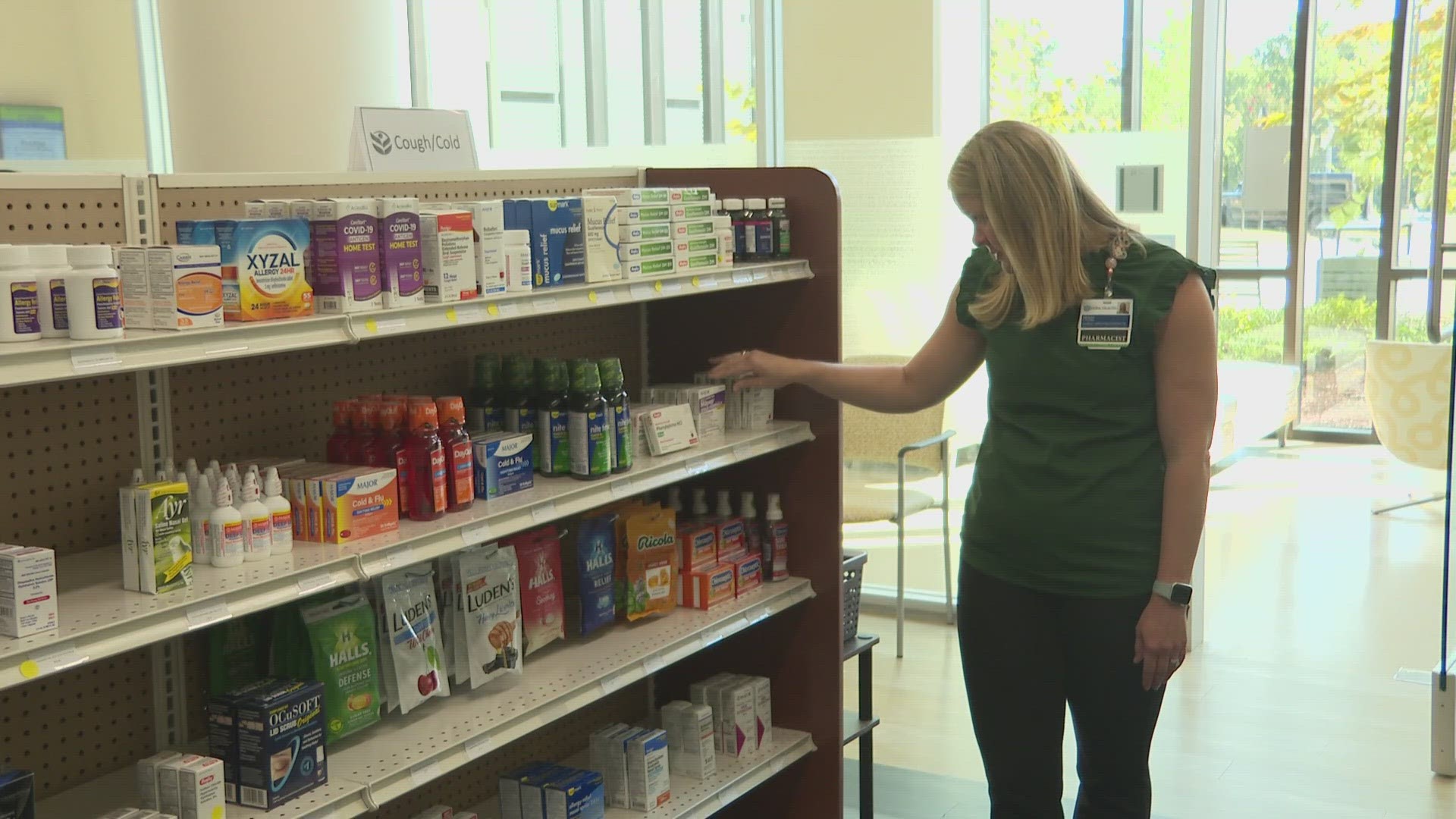GREENSBORO, N.C. — When you walk down the cold medicine aisle at the pharmacy, it’s almost overwhelming the number of medications.
What is common in just about all of them is the active ingredient, phenylephrine.
This is the active ingredient in nearly all of the medications you buy with a decongestant that helps to relieve sinus congestion.
The drug was put on the market back in the 1970s, but became the active ingredient in many medications when the federal government limited the sale of pseudoephedrine, commonly known as Sudafed.
"Phenylephrine is a compound that actually constricts the blood vessels. When it does that it actually reduces the ability for nasal congestion to kind of set into your nasal cavities," said Pharmacist Ashley East with Cone Health MedCenter Greensboro.
This week, an FDA advisory panel found phenylephrine to be no more effective at symptom relief than a placebo.
It will be up to the FDA to decide whether or not to pull the drug off store shelves.
East says this panel finding has been a long time coming but there are alternatives including nasal sprays and pseudoephedrine, which is still available at the pharmacy counter.
"This is not an FDA statement that came out. This is an advisory board and there will be other organizations who are going to come out and they're going to contest the statement, and they're going to challenge it and they're going to say their opinion. So this is by no means a recall. This is not a stop using it. It may be the best option for some people who cannot take pseudoephedrine," said East.
The consumer Healthcare Products Association represents the companies that manufacture these most cold medications.
In a statement released on Wednesday the association pushed back against the findings of the FDA Advisory panel, saying “We are disappointed by the outcome of today’s FDA Advisory Committee meeting because its non-binding recommendation is at odds with the numerous clinical trials…we are concerned about previous clinical evidence being inappropriately dismissed and discounted.”
East says phenylephrine is still a safe.
"As far as what the FDA panel put out, they were just basically saying this doesn't work compared to a placebo as well. But it's not necessarily saying this is not safe. So if people have taken it, yes, maybe you will even realize that it hasn't worked as well, but it's not necessarily unsafe. That's not what the FDA is saying," said East.
There are also two types of the popular decongestant Sudafed, one has phenylephrine as the active ingredient, the other with pseudoephedrine, how can someone know the difference?
"In order to get the "real Sudafed" with pseudoephedrine, you actually have to visit the pharmacy counter. They only sell that during open hours. So if you're sick at night, you're not going to be able to get real, real Sudafed unless you visit a 24-hour store. It does require a driver's license. You must be 18 years or older and there are quantity limitations," said East.
East says there are some alternatives that you can turn to if you need to relieve some of these cold or sinus-related symptoms.
"You have even cold mist humidifiers, you had your nasal sprays that you can use you have saline rinses, even antihistamines, like Claritin, and Zyrtec can help with congestion even if they aren't allergy related. So, there are lots of other options out there for nasal congestion," said East. "Obviously, pseudoephedrine is the most common alternative. It is important to talk to your physician, talk to your pharmacist to determine if that's the right medication for you. It's not for everybody, specifically those with high blood pressure."
The FDA will now have to decide whether or not to pull these medications from store shelves.
Experts have said if that were to happen it could eliminate unnecessary costs and delay in care by taking a drug with little benefit.
On the other hand, it could limit access to decongestants to the pharmacy, making them available only when the pharmacy is open and it would require an ID for purchase.

